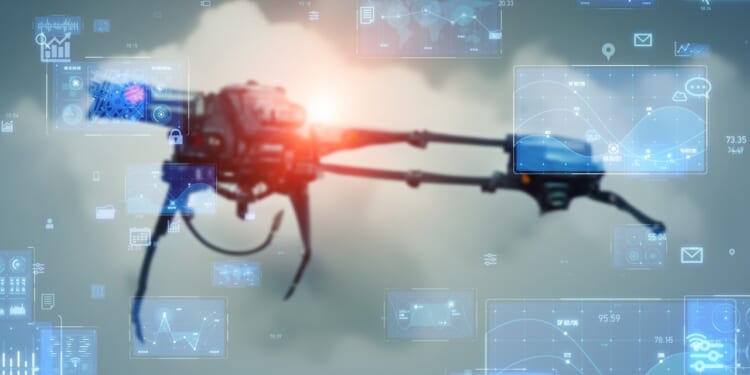All nations developing military AI programs are under pressure to innovate faster than their rivals, even if this means ignoring safety precautions.
Nations have always raced one another for an advantage—in weaponry, resources, or land. But today that race is shifting into a new frontier: artificial intelligence.
Across the globe, developed nations are treating artificial intelligence as a national-security obsession. Washington, Beijing, Brussels, and Moscow have each taken their own distinct approach to the development of what has been called “the last invention.” But undergirding each country’s distinct approach is an identical strategic impulse, the understanding that whoever develops the most capable artificial intelligence will vault to the top of the global hierarchy—so long as that global hierarchy remains intact.
All Great Powers Are Racing Towards AI Autonomy
The United States is pushing aggressively towards the integration of artificial intelligence into defensive and offensive capabilities, yet with an emphasis on “keeping humans in the loop” and only using AI to process data and guide weapons at machine speed, preserving human judgment as vital to the process. Simultaneously, China is treating AI as an organizing principle for governance and war. Russia, meanwhile, uses AI for information warfare, while Israel uses it for real-time targeting.
But while these leading nations differ in stylistic approach to AI, they share a common theme—they are all accelerating.
The acceleration has invariably led to an ongoing reduction in human deliberation in favor of algorithmic efficiency. Eventually humans won’t be in the loop—deciding—but merely on the loop, supervising the decisions that AI makes for itself. From a military standpoint, the notion is attractive. Machines don’t tire, hesitate, or disobey; they are the perfect cog in the wheel. Justifying the acceleration, nations allude to an AI deterrence mechanism, akin to the nuclear deterrence that guided the 20th century.
But whereas nuclear weapons are by now intimately understood—from their inner workings to their destructive yield to the strategic calculations surrounding their use—artificial intelligence is not fully understood. Deterrence seems less likely when no one really understands the weapons or systems being used to deter. And unlike the nuclear age, the AI arms race doesn’t seem to have boundaries or guardrails. There are no international treaties or test bans. There isn’t even a solid definition of what constitutes a “weapon.” And while nuclear weapons were fundamentally compartmentalized, an isolated entity, the AI systems that guide weaponry also spread in some form through facets of our everyday life—blurring the lines further and making meaningful restraint exceedingly difficult.
AI Guardrails Would Slow America Down
Yet nations push ahead with AI development for the strategic fear of falling behind. Nations don’t see AI as optional, but as the defining domain of military dominance and economic leverage. If a rival achieves some form of comprehensive, integrated artificial intelligence, then traditional defenses could be rendered obsolete in an instance.
From a security perspective, such an outcome is unacceptable. The irony is that in achieving the AI necessary to bolster one’s security, one risks creating a tool that undermines the security of everyone.
Artificial intelligence is hardly the first man-made tool to pose an existential threat to humanity. Nuclear weapons are the obvious precedent. But nuclear weapons are only tools; they do not think, adapt, grow, or learn. Nuclear weapons can never decide to detonate themselves; they exist at the whim of man to deploy at will. The artificial intelligence systems that nations are currently racing to field may well exist independent of man, with a will all their own.
About the Author: Harrison Kass
Harrison Kass is a senior defense and national security writer at The National Interest. Kass is an attorney and former political candidate who joined the US Air Force as a pilot trainee before being medically discharged. He focuses on military strategy, aerospace, and global security affairs. He holds a JD from the University of Oregon and a master’s in Global Journalism and International Relations from NYU.
Image: Shutterstock / metamorworks.

















